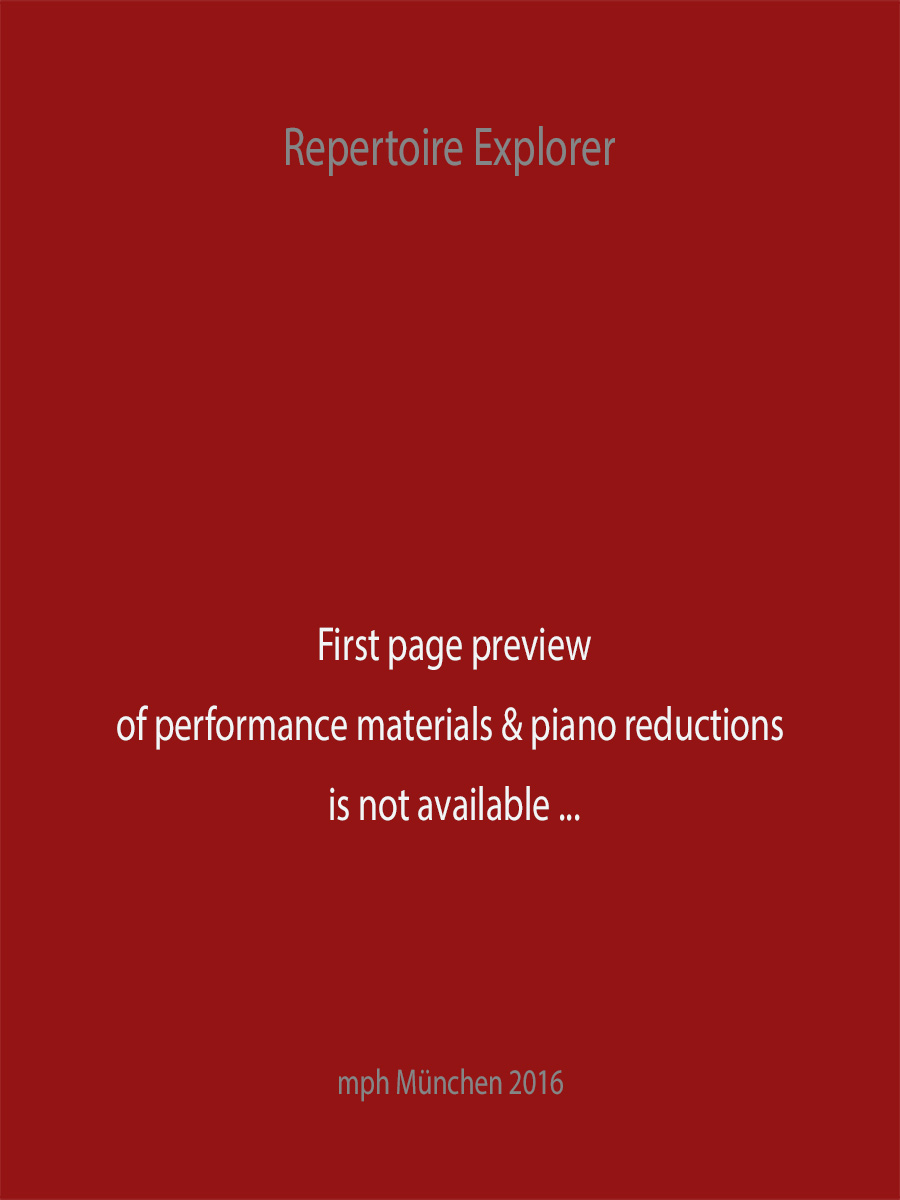String Quartet No. 2 in G (4 string parts)
Schmidt, Franz
24,00 €
Preface
Schmidt, Franz – String Quartet No. 2 in G (parts)
Infos about the piece
I Molto tranquillo
II Adagio
III Scherzo. Allegro vivace
IV Allegro
Franz Schmidt wrote his String Quartet no. 2 in G major in 1929at his home in Perchtoldsdorf, a town on the outskirts of Vienna. It is dedicated to Arnold Rosé (1864-1946), the famous violinist, who with his Rosé Quartet premiered the work in Vienna oin 22 March 1930. What we know of the occasion is handed down to us in Julius Korngold’s review of the concert, which is not exactly impartial or objective. “Rosé wanted to show that the pretended necessity for contemporary novelties is really felt as such only by partisans, especially in the field of chamber music, where neither stage scenery nor film imagery offer assistance, and which has a seriously musical audience besides” – and thus forbade the distribution of complimentary tickets or the selective offering of free admission at the door. The result was a “yawningly empty hall” in which “everyone who had come sought to increase himself tenfold in his applause in order to compensate the artist.” This could all very well be true, but it is nonetheless worth noting that Rosé never repeated the work on subsequent programs – and Róse was famous for taking up the cause of difficult or controversial works that he considered valuable. The credit for advocating Schmidt’s new quartet in repeated performances until the Viennese public warmed to it belongs to another Viennese ensemble, the Sedlak-Winkler Quartet.
For Schmidt’s String Quartet no. 2 doesn’t at all belong to those of his works that are immediately comprehensible. The monographs about the composer and his works – for instance, those by Andreas Liess (1951), Carl Nemeth (1957), and Norbert Tschulik (1972) – all agree in the claim that Schmidt’s intensive engagement with avant-garde music at that time left its traces in the advanced chromaticism of this string quartet. (In the April of the year he composed it, he also organized a Schoenberg evening at the Fachhochschule für Musik und Darstellende Kunst, where he was rector; this included a performance of Pierrot Lunaire, which he himself directed following numerous rehearsals.) But this is true in only a limited sense. One would do well to recall Hans Pfitzner’s famous judgment of Schmidt’s music: “more honest than Richard Strauss, richer in imagination than Reger, and more perfect in form than Bruckner” – and while one may not agree with the judgment itself, one has to admit that Pfitzner identified the correct points of reference. This is also true in the case of the String Quartet no. 2. Nemeth writes that “the first movement, in its dense chromaticism and its complicated harmonic situations, reminds one of Reger more than anything else”, a comment that is for the most part true of all four movements. Schmidt’s linear progressions are in fact clearer and more supple than those of Reger’s, with greater value placed on continuity of motion. To be sure, the Scherzo and parts of the Finale border on the bizarre, but grace and (if it isn’t too stereotypical to use the term) Gemütlichkeit are never entirely absent and often determine the manner of expression. To maintain, as Tschulik does, that “the stretching of the concept of tonality seems to be pursued close to the point of atonality” is simply false. Granted, at the beginning of the first movement – Tschulik’s example – one doesn’t immediately realize “that one is dealing with a work in G major”, but such an opening gambit is hardly unheard of in tonal music; and besides, one could say that Schmidt’s chromatically sequencing linear progressions result in a certain loosening of tonal purposiveness, but even his most abstruse stylistic means – for instance his harmonically stubborn walking basses—show themselves to as confirming rather than dissolving the sense of tonality. In at least one sense Julius Korngold was probably correct in the review cited earlier, namely in his representation of Schmidt’s attitude toward the musical avant-garde: “Did not this Viennese master intend a half serious, half jesting demonstration, just as his interpreter did? Did he not prove that he can do everything that the linearists can, but better, more musically, and more richly in fantasy and ingenuity?” …
Full preface / Deutsches Vorwort HIER
Score Data
| Edition | Repertoire Explorer |
|---|---|
| Genre | Chamber Music |
| Size | 225 x 320 mm |
| Printing | Reprint |
| Specifics | Set of Parts |
| Specifics | Set of Parts |
| Size | 225 x 320 mm |
